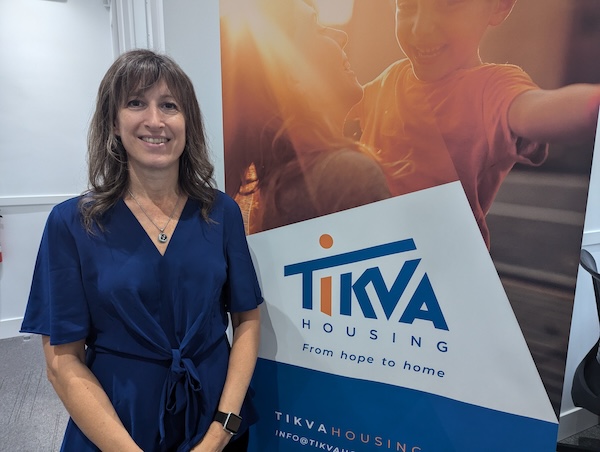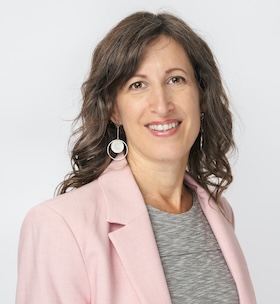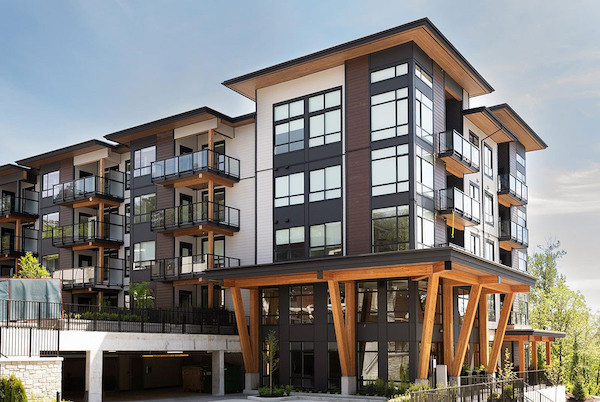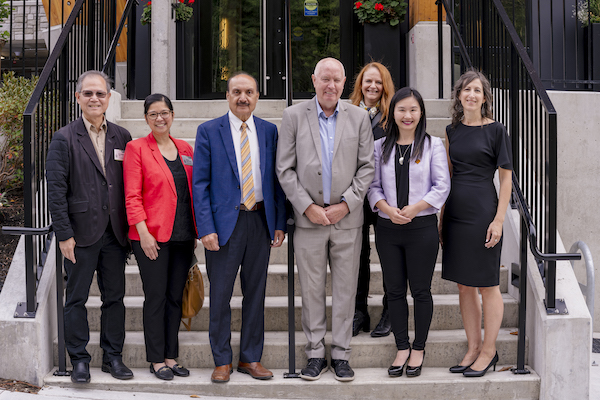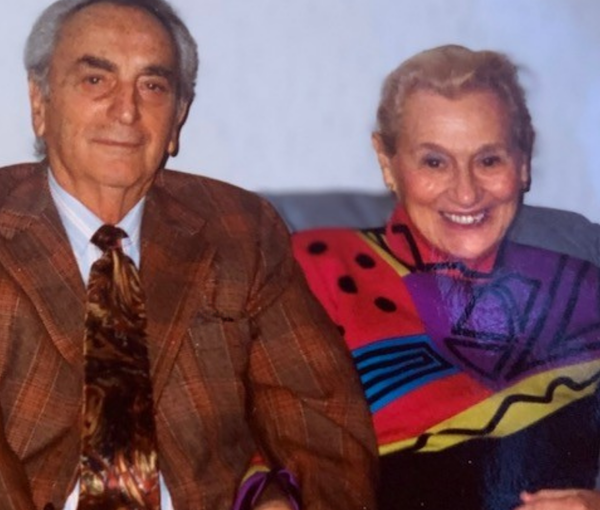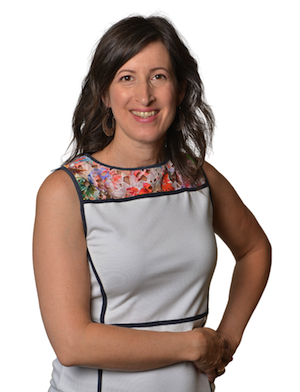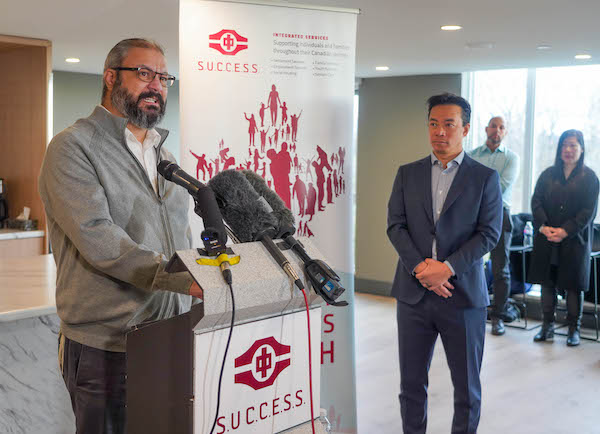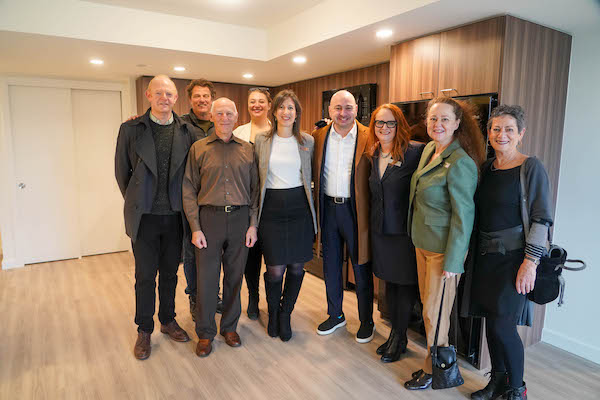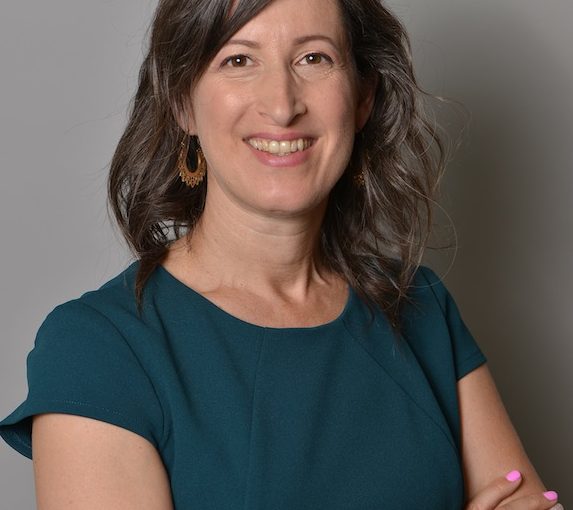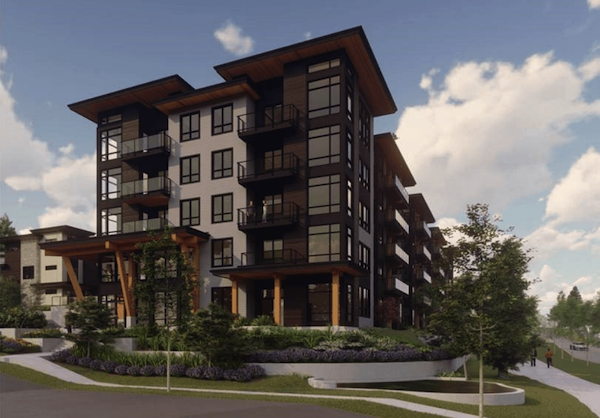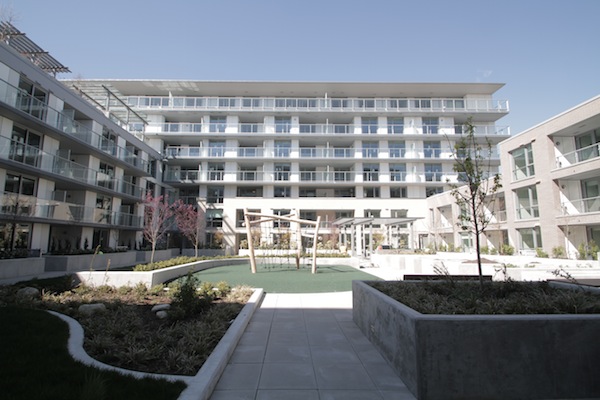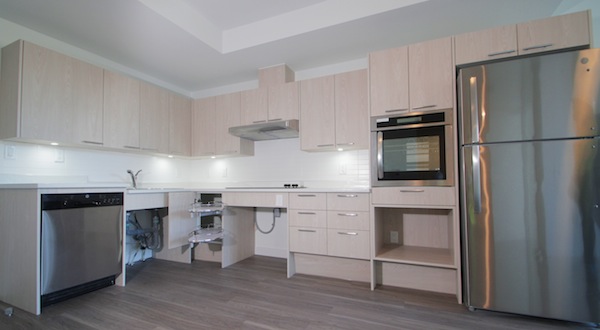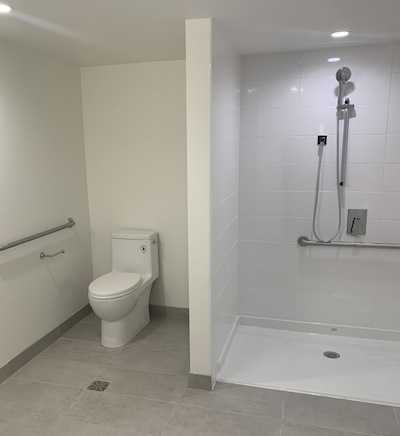Tikva Housing Society’s executive director Anat Gogo stands in front of a poster bearing the agency’s new logo. (photo by Pat Johnson)
Tikva Housing Society has a fresh logo and new branding. The big reveal took place Sept. 25 in the organization’s new headquarters on West Broadway in Vancouver’s Fairview area.
Tikva provides affordable housing options for Jewish community members. In 2018, it operated 29 homes, helping 95 people. In 2024, it operates 168 homes, putting roofs over the heads of 375 people. The number of people benefiting from the agency’s rent relief program for market housing has quadrupled.
Like the original logo, the new one takes the shape of a home, explained Anat Gogo, Tikva’s executive director. The bottom part of the “i” in Tikva not only forms the door to the house, but, together with the letter’s crowning dot, implies a person. Accompanying the new logo is Tikva’s first-ever “positioning line” of “From hope to home.” Even the typeface is entirely unique.
The redesign is the brainchild of adman man and a team he assembled, which includes Brenda Wasserman, a brand manager who also happens to be his niece.
The rebranding began with a survey of core Tikva stakeholders, who were asked as part of a strategic planning process what comes to mind about the organization. Several participants said the existing logo depicted the organization as, Gogo said, “too shy, too meek, too quiet about the work that we do. If you look at the old logo, it looks frail.”
“They spoke to how we need to be more outspoken and how we need to be making more noise,” she said.
Tikva Housing Society was incorporated in 2007, but its roots go to 1994, when it was launched as a division of the Jewish Federation of Greater Vancouver. At the outset, its main role was to provide financial subsidies to help individuals and families make rent. The goal is to keep rent to 30% of income.
Tikva’s first direct intervention into housing management was Dany Guincher House, an 11-unit apartment building that opened in 2008.
It would be a decade before Tikva acquired their next housing units, but then the pace quickened.
“We have seven sites and growing,” said Gogo.
Tikva doesn’t go for cookie-cutter approaches. Every housing project is unique. They have two standalone buildings, and their other five locations are designated apartments within larger complexes. Each is a result of partnerships with other social agencies, governments, foundations and, most recently, a development company.
“Tikva is very innovative,” she said. “We are always seeking solutions and finding creative ways to make these opportunities work. It’s a mix of preparedness meeting opportunity.”
Gogo credits the board of directors for being audacious – they aim to build 1,000 housing units within 10 years.
One example of innovative thinking was a design change during the development of the Ben and Esther Dayson Residences, a 32-unit townhouse development in South Vancouver’s River District. With a little rejigging of the blueprints, what were to be all three-bedroom units were made to accommodate four four-bedroom units, which are almost completely unknown in the market and non-market housing sectors.
Despite the increase in supply, Gogo said, there remains much unmet demand.
The Jewish Housing Registry, a joint project of Jewish Family Services and all the Jewish organizations that are involved in the housing sector, is a centralized list of people awaiting housing supports. Currently, the list has 500 people, including 95 families and about 140 seniors.
“We need more housing,” she said. “It’s not a secret.”
In a sign of the times, Tikva has been approached by potential residents who are looking for housing not because of financial considerations but because, according to Gogo, they have “a need for secure, community, Jewish-oriented housing because they may have experienced antisemitism in their current communities.”
Tikva, she said, does not only supply homes and subsidize residents in market housing.
“We do a lot of community building with our tenants,” she said.
Like the housing market itself, Tikva’s challenges and successes are based on supply and demand. In one of the world’s most expensive housing markets, there is plenty of demand for affordable housing and rental subsidies. But where does the supply come from?
Gogo credits the Jewish community for recognizing the urgent need and stepping up.
For about Tikvah Housing Society, visit tikvahousing.org.

